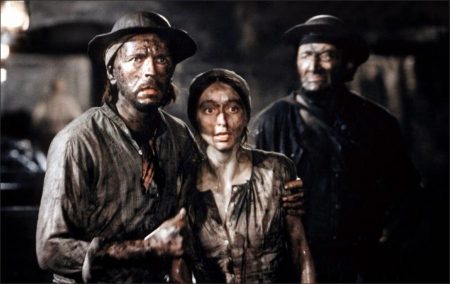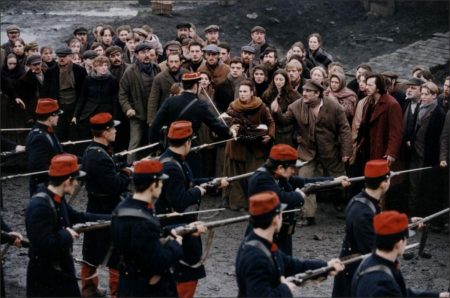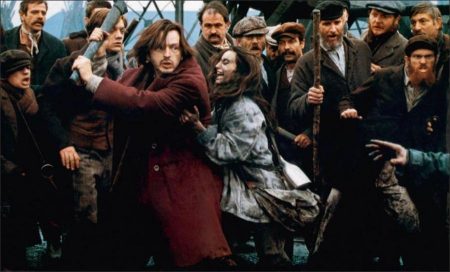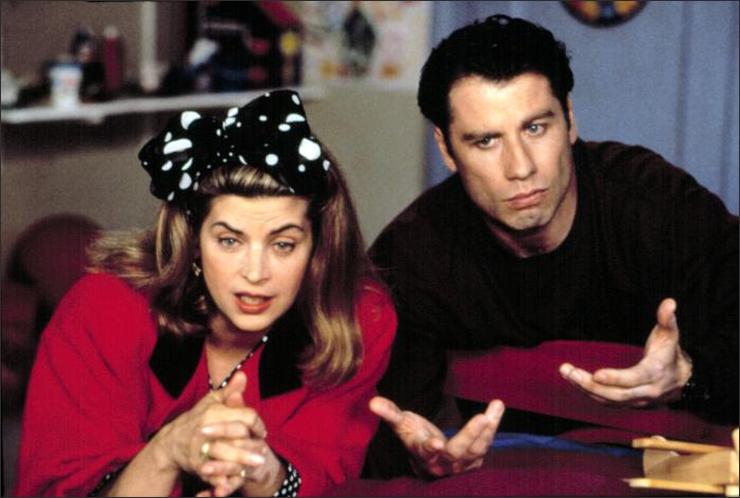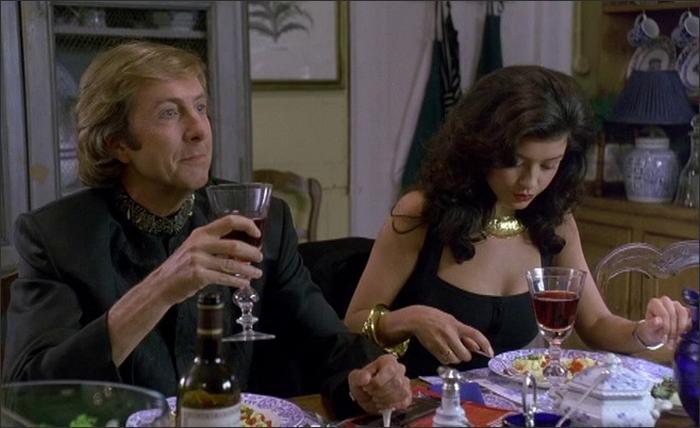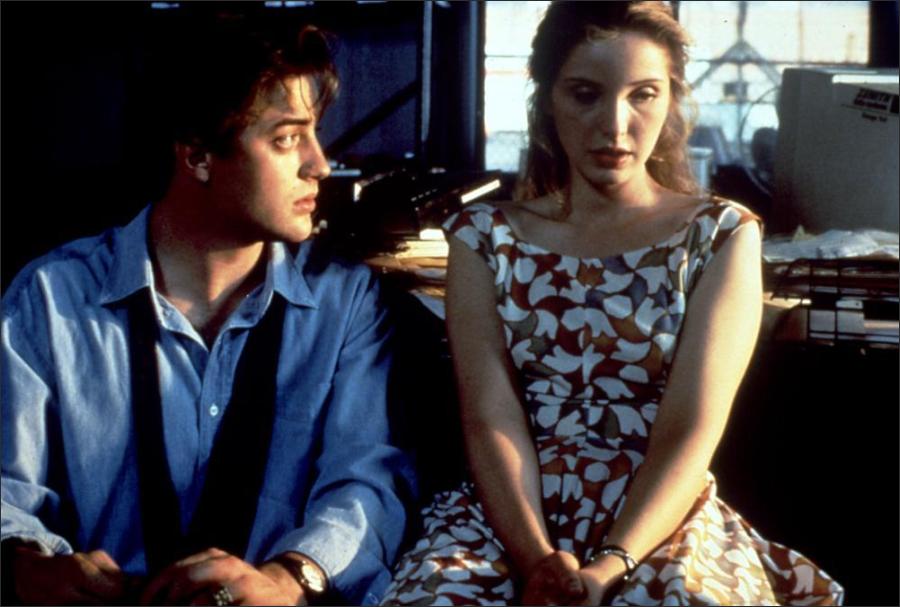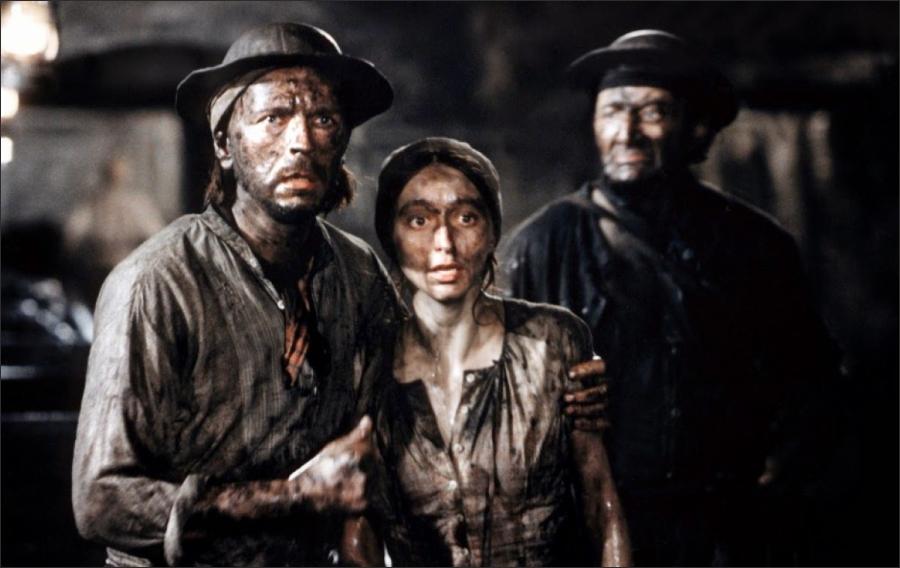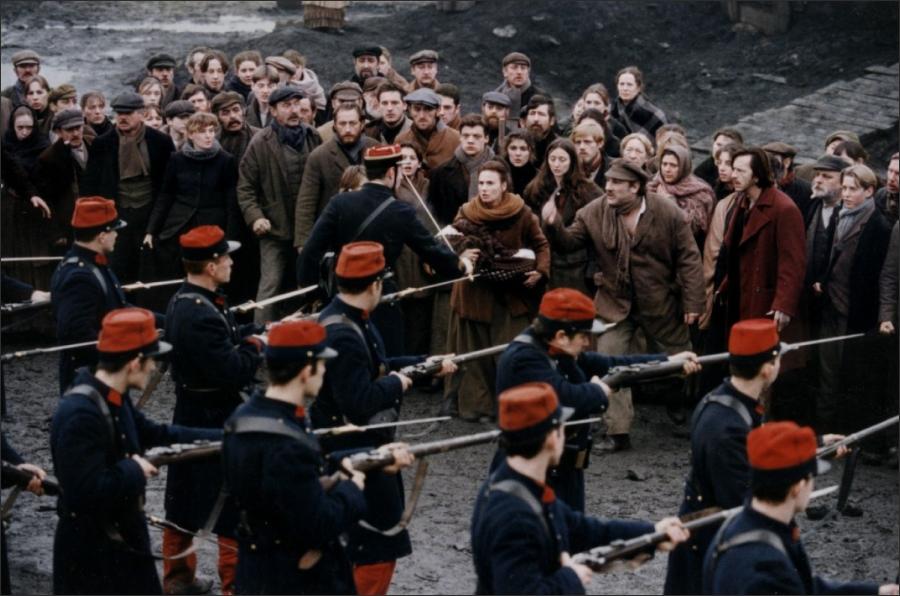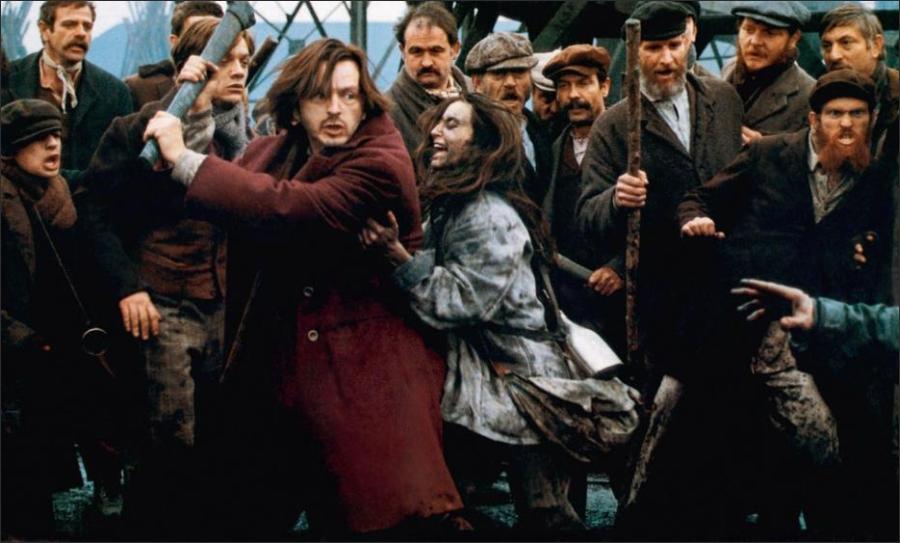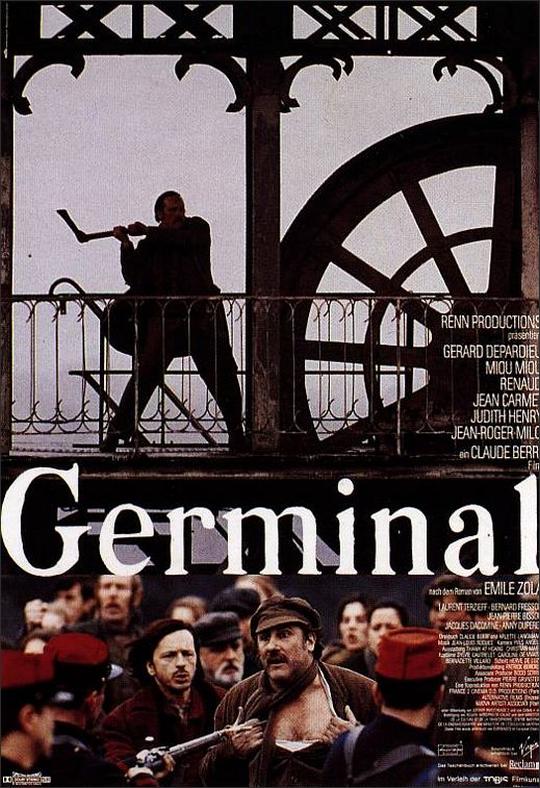Germinal movie storyline. It’s mid 19th century, north of France. The story of a coal miner’s town. They are exploited by the mine’s owner. One day the decide to go on strike, and then the authorities repress them.
Germinal is a 1993 French epic film based on the novel by Émile Zola. It was directed by Claude Berri, and stars Gérard Depardieu, Miou-Miou and Renaud. At the time it was the most expensive movie ever produced in France. The film had 6,161,776 admissions in France making it the 4th most attended film of the year.
It won the César Award for Best Cinematography and Best Costume Design, and was nominated for Best Film, Best Actress, Best Supporting Actor, Best Supporting Actress, Best director, Best Writing, Best Sound, Best Editing, Best Music and Best Production Design. The film was selected as the French entry for the Best Foreign Language Film at the 66th Academy Awards, but was not accepted as a nominee.
Film Review for Germinal
“Germinal,” Claude Berri’s epic, reverential screen version of the classic Emile Zola novel about striking coal miners, is as brutally honest as a $30 million movie can be. The poverty seen here is not pretty, but neither is it without a certain bleak appeal. Muted gray-brown tableaux are eloquent in their composition. A comely female miner wears off-the-shoulder rags and mines topless when the temperature gets high. Circumstances force this same miner to bathe in a kitchen washtub as her father and brothers devour their meager dinner. Naturally, being concerned with oppression and survival, the men are too busy to notice.
Who says romance is a matter of love songs and long strolls in the moonlight? Surely “Germinal,” which opens today at the Paris Theater, is one of the most desperately romantic films ever made. It harks back fervently to the simpler world that was roused to outrage by the vividness of Zola’s social realism. In that world, the rich are parasites, the poor are ennobled by their suffering and the solution is distant but within view. The film yearns passionately for such clarity, to the point where the black and white polarities of its politics are not compromised by subtler shadings.
Though he spent little more than a week observing striking miners in northeastern France, Zola was able to transform his thousand pages of notes into an 1884 novel (the 13th of 20 in his Rougon-Macquart series) that came as a revelation to his readers. At that time, the truth about the exploitation of miners was not widely known. Shaped into the wrenching story of one family’s struggle for survival and set against the broad canvas of the miners’ uprising, that truth became as shocking as the idea that workers of the world might unite.
The journalistic impact of “Germinal” is theoretically unchanged, since Mr. Berri’s film will be seen by plenty of viewers who have never been down a mine shaft. (“Germinal” is among France’s all-time top 10 box-office hits.) But the hardships that Mr. Berri has rendered so faithfully now seem as artificial, in their way, as the Broadway musical version of “Les Miserables.” It’s difficult for a film to pretend that real characters speak in the language of placards (“We’re hungry and tired of being poor!” “Why is the price of justice so high?”). It’s no easier to believe that Gerard Depardieu, despite another astonishingly honest and unaffected performance, could be a miner fighting off the threat of starvation.
Unlike Mr. Berri’s “Jean de Florette” or “Manon of the Springs” (or even Bernardo Bertolucci’s “1900,” another handsome epic with a sternly polemical bent), “Germinal” does not allow its actors much room for nuance. The characters in this Gallic “Grapes of Wrath” are powerful but paper-thin. Mr. Depardieu appears as Maheu, the salt-of-the-earth father of a large brood and a foreman at Le Voreux mine, which itself is so important it is almost a living character. Miou-Miou gives a fiery performance as his valiant wife, Maheude, who has much reason to grieve during the latter part of the story.
The third principal in the miners’ village (which is controlled by the mining company, like everything else about the workers’ lives) is Etienne Lantier, the character linking “Germinal” to Zola’s other novels in this series. As played by Renaud, a French singer and activist with the intensity of a firebrand graduate student, Lantier crystallizes the story’s quiet fury. Arriving at Le Voreux in need of a job, he first observes the horrifying particulars of the miners’ existence. (The film re-creates these details with impressive fidelity, from the miners’ fear of firedamp to the cart horse that is lowered down the mine shaft.) Later, Lantier is central to the rebellion alongside Maheu, who becomes its unlikely leader.
When Maheu and Lantier address one large gathering of their fellow workers, they are seen flanking a large crucifix. And the workers’ ranks happen to incorporate 800 extras who are descended from the original miners who inspired Zola’s story. Here and elsewhere, Mr. Berri misses no opportunity to go overboard in self-righteous fashion. His scenes contrasting the story’s well-fed, morally bankrupt capitalists (played by Jacques Dacqmine, Anny Duperey and others) with its impoverished workers are even blunter than Zola’s versions, in which the fresh-baked brioche of the wealthy underscores the workers’ lack of bread.
If “Germinal” embraces the attitudes of a diatribe, its manner is much more moderate. Mr. Berri is a skillful storyteller even when working with material that has no psychological dimension. That is one of the challenges posed by “Germinal,” the other being the fact that very little of Zola’s tale unfolds in broad daylight. Despite the story’s many nocturnal and underground episodes, “Germinal” achieves an impressively varied visual style. Yves Angelo, the superb cinematographer whose credits include “Un Coeur en Hiver,” “The Accompanist” and “Tous Les Matins du Monde,” gives this film a delicately varied palette and a spare, haunting beauty.
“Germinal” (adapted by Mr. Berri and Arlette Langmann) may be hobbled by obviousness, but it remains a formidable accomplishment. Mr. Berri does succeed in capturing the novel’s sweep, and he never minimizes its sense of purpose. Even when set forth in the multi-million-dollar language of present-day film making, the hard facts of this story have enduring force. Mr. Berri keeps the story’s violence abrupt and shocking just as Zola did, which has the effect of magnifying its pent-up rage.
Difficult as it is to think of a coal-mining drama as sheer escapism, “Germinal” is most tempting for its vision of moral purity. The world in which this film was made is much more daunting than the one it brings to life.
Germinal (1993)
Directed by: Claude Berri
Starring: Renaud, Gérard Depardieu, Miou-Miou, Jean Carmet, Judith Henry, Jean-Roger Milo, Laurent Terzieff, Bernard Fresson, Jean-Pierre Bisson, Anny Duperey
Screenplay by: Claude Berri, Arlette Langmann
Production Design by: Christian Marti, Hoang Thanh At
Cinematography by: Yves Angelo
Film Editing by: Hervé de Luze
Costume Design by: Moidele Bickel, Caroline de Vivaise, Sylvie Gautrelet
Art Direction by: Olivier Radot
Music by: Jean-Louis Roques
MPAA Rating: R for intense depiction of suffering and class conflict.
Distributed by: AMLF
Release Date: September 29, 1993 (France)
Views: 229
